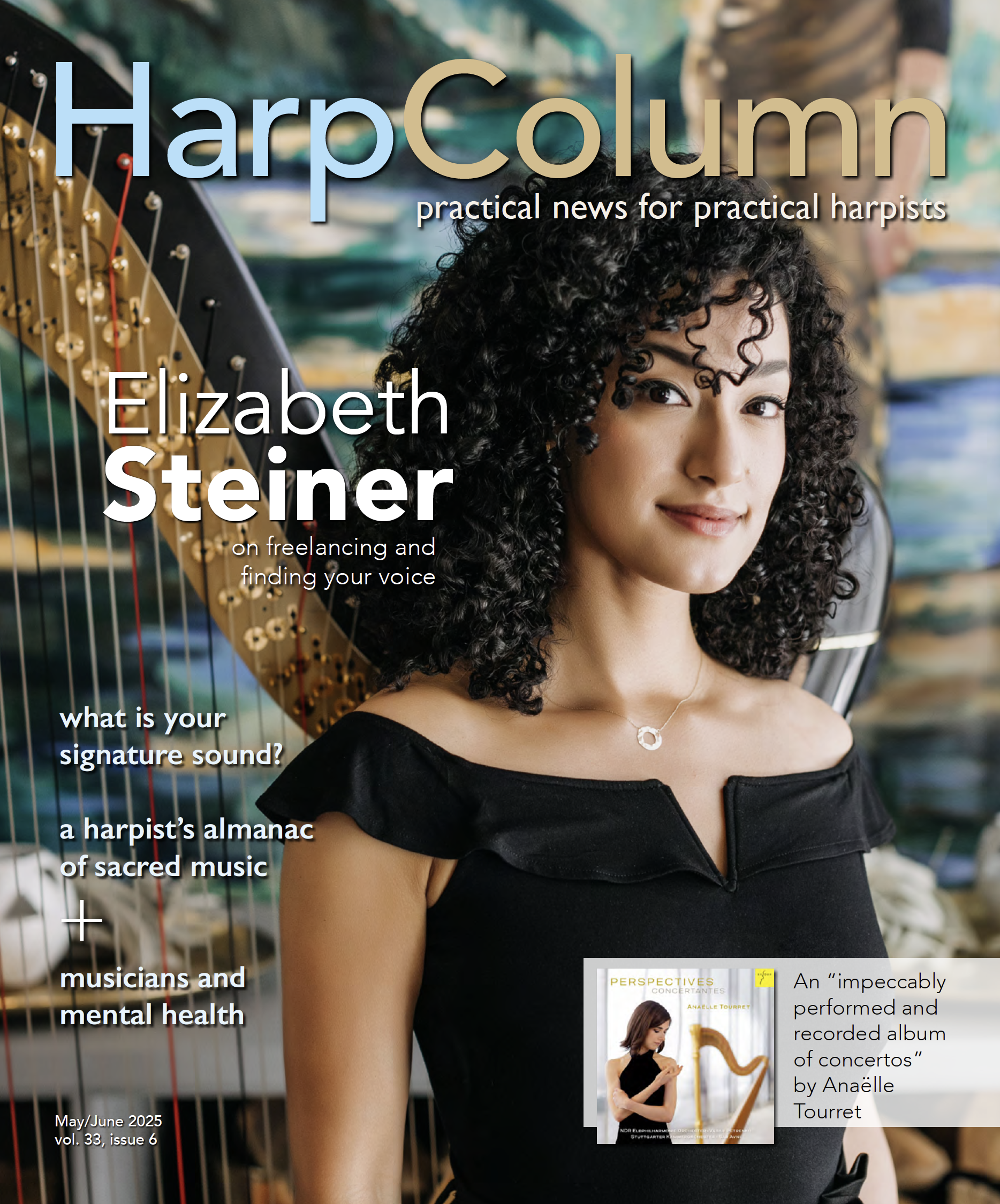Home › Forums › Forum Archives › Professional Harpists › toccata and Fugue in d minor
- This topic has 14 replies, 9 voices, and was last updated 13 years, 1 month ago by
Briggsie B. Peawiggle.
-
AuthorPosts
-
April 2, 2012 at 8:08 am #146277
jordan-thomas
Participanti was wondering if anyone knew if there was a transcription of Toccata and Fugue for harp out there. If so where can I find it?
April 2, 2012 at 12:09 pm #146278brook-boddie
ParticipantRhett Barnwell has done one.
April 2, 2012 at 6:18 pm #146279carl-swanson
ParticipantWhy on earth would anyone want to play this piece on the harp??? I heard a very fine russian harpist do it in New York a few years ago and thought then that it didn’t work at all for the harp. The harp is not a sustaining instrument. The organ is, and Bach makes heavy use of that fact in this piece, particularly at the beginning.
April 2, 2012 at 6:31 pm #146280zoraida-avila
ParticipantIs necessary a very-very big sound, excellent harp and exceptional technique.
Listen to Varvara Ivanova, is she you are talking about?http://www.youtube.com/watch?v=EHy5l1n0HLE
Zoraida
April 2, 2012 at 8:17 pm #146281carl-swanson
ParticipantYes, I heard her in New York. She’s an excellent harpist. But the piece just doesn’t work on the harp. The sound and texture of the harp is just too different from the organ.
April 2, 2012 at 8:28 pm #146282unknown-user
ParticipantI disagree. I think the transcription works wonderfully. In fact, I think many parts are superior to the original exactly because the harp doesn’t have as much sustain.
~Sam
April 2, 2012 at 8:31 pm #146283jordan-thomas
ParticipantYes I agree. I was just interested in see how it was transcribed. I believe that there are some pieces that should not be transcribed for harp, and there are some that can work. I think the Toccata could work if you have the right sound and if you play it in a hall or church that has acoustics of a bath tube.
April 3, 2012 at 3:33 am #146284brook-boddie
ParticipantRhett’s arrangement is very nice.
April 3, 2012 at 5:04 am #146285Jerusha Amado
ParticipantShe does a wonderful job dealing with what looks to be a very difficult piece, but I would have to agree with Carl that it is not ideal for the harp, in my opinion.
Jerusha
April 3, 2012 at 5:08 am #146286Jerusha Amado
ParticipantHi Brook!
Watching Varvara’s performance of the piece on pedal harp leads me to think that it is quite difficult to execute.
April 3, 2012 at 11:00 pm #146287Briggsie B. Peawiggle
ParticipantHi Brook,
I’m also an organist by trade, and to me some Bach works on harp and some just doesn’t. I don’t think the d minor really works well, but then I prefer my husband’s version which is sort of fashioned after the Stokowsky orchestral version, which is pretty huge and magnificent. That’s the way I like it, and the harp just isn’t going to cut that sort of version.
Briggsie
April 4, 2012 at 12:28 am #146288sherry-lenox
ParticipantMy teacher and I were just discussing this at my lesson today, so it’s really nice that someone else is familiar with the Stowkosky version. That was an era in which classical music could make musicians into movie stars.
April 4, 2012 at 5:01 am #146289Briggsie B. Peawiggle
ParticipantUm yeah, but I forgot to say, that I can
April 10, 2012 at 2:23 am #146290Saul Davis Zlatkovski
ParticipantOne has to know the harp extremely well to really judge pieces for their suitability. It takes years to fully understand not only the sound of the harp and what it can do well, but to understand other instruments and what is lost in transcription. There are many pieces where the notes are physically possible, but not esthetically. In student years, it is easy to be led down a rosy path of misdirection, and it is for that reason it is most important to study thoroughly the masterpieces and standard literature that suit the harp well. If I had not had strong guidance in this, I would have terrible taste in transcriptions! Sometimes a piece may be perfectly suited to the harp, such as Chopin’s Minute Waltz, but what audience wants to hear it on the harp when they are used to fantastic pianists playing it? Plus, the piano is so much smoother. It is also far more work to play such pieces on the harp than on the piano, so we should choose wisely, as our time is more limited than we think.
There are pieces that are very instructive, to compare the transcription to the original. Compare the Salzedo transcription of the Pescetti Sonata to the original and you will be surprised. A thorough study of his transcriptions is essential to developing a wise approach to transcription.
Another example of superb work is Dewey Owens’s first edition of the Bach Chaconne.
April 11, 2012 at 3:34 am #146291Briggsie B. Peawiggle
ParticipantNo, I disagree, but of course, this is not a surprise.
-
AuthorPosts
- The forum ‘Professional Harpists’ is closed to new topics and replies.






